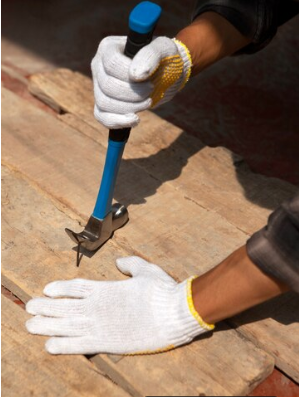When faced with home damage, homeowners often debate whether to file an insurance claim or handle the repairs themselves. While doing repairs on your own may seem like a cost-effective and quick solution, there are significant downsides. Below are the main disadvantages of DIY home repairs compared to utilizing your home insurance coverage.
Financial Burden of Repair Costs
One of the biggest drawbacks of handling home repairs yourself is the potentially high out-of-pocket costs. Home insurance is designed to cover damages caused by covered perils, such as storms, fires, and water damage. If you skip filing a claim, you may have to pay for materials, labor, and equipment on your own, which can quickly add up, especially for extensive damage.
Risk of Incomplete or Improper Repairs
Unless you are a professional contractor, there's a risk that DIY repairs may not be up to code or properly executed. Incorrect repairs could:
- This leads to further damage if underlying issues are not properly addressed.
- Pose safety risks, especially in cases involving electrical work, plumbing, or structural damage.
- Reduce home value, as improperly repaired damage may be flagged during inspections if you sell the property.
Loss of Insurance Coverage for Future Claims
If you fail to report damage and attempt to fix it yourself, your insurance provider might deny future claims related to the same issue. For example, if a minor roof leak worsens over time and leads to significant structural damage, your insurer may argue that neglect or poor repairs contributed to the issue, making you ineligible for coverage.
Time and Effort Involved
Repairing home damage can be time-consuming and labor-intensive, especially for complex projects. If you lack the necessary skills, you may spend days or weeks on repairs that professionals could complete much faster. Additionally, mistakes could result in needing additional repairs, further extending the process.
Potential Code Violations and Legal Issues
Certain repairs, such as electrical, plumbing, and structural work, often require permits and adherence to building codes. If you conduct repairs without the proper permits or fail to meet local regulations, you could:
- Be forced to redo the repairs at your own expense.
- Face fines or penalties from local authorities.
- Struggle to sell your home if an inspection reveals unauthorized work.
Conclusion
There are a lot of risks associated with doing house repairs on your own, including spending more money than necessary, making shoddy work of the repairs, voiding your insurance, and even getting in trouble with the law. Make sure submitting an insurance claim is the safer and more beneficial choice before deciding to remedy the damages yourself.






